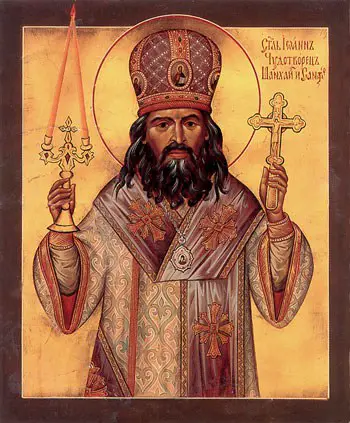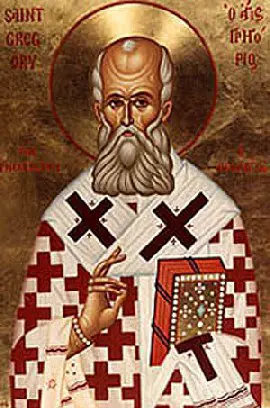St. John Maximovitch: On the Holy Pentecost

The Father, the Son and the Holy Spirit share one nature, one essence, one substance. That is why the Three Faces are the Trinity, one-in-substance. Humans also have one nature, one substance.
But while God is the Indivisible Trinity, divisions occur in mankind constantly… The Father, the Son and the Holy Spirit have common thought, common will, common actions. What the Father desires, the Son also desires, and the Holy Spirit also desires. Whatever the Son loves, so do the Father and the Holy Spirit also love. Whatever is pleasing to the Holy Spirit, is pleasing to the Father and Son. Their actions are also common among them, all act in conjunction and in accord.
This is not so with man. We are in constant disagreement, we have differing desires. Even a small child expresses his own wishes, willfulness, disobedience to his loving parents. As he grows older, he separates from their more, and so often in our day becomes completely alienated from them. People simply don’t share identical opinions, on the contrary, there are perpetual divisions in all things, quarrels and conflicts between individuals, wars between nations.
Adam and Eve, before their Fall, were in full accord and of common spirit with one another at all times. Having sinned, alienation was immediately sensed. Justifying himself before God, Adam blamed Eve. Their sin divided them and continues to divide all of mankind. Emancipated from sin, we approach God, and, filled with His grace, we sense our unity with the rest of mankind. Such unity is very imperfect and lacking, since in each person some portion of sin remains. The closer we approach God, the closer we approach each other, just as the closer rays of light are to each other, the closer they are to the Sun. In the coming Kingdom of God there will be unity, mutual love and concord. The Holy Trinity remains eternally unchanging, all-perfect, united in essence and indivisible.
The One, Indivisible Trinity ever remains the Trinity. The Father always remains the Father, the Son remains the Son, the Holy Spirit remains the Holy Spirit. Besides Their personal Properties, They all share all in common and in unity. That is why the Holy Trinity is One God.
+ St. John Maximovich of Shanghai and San Francisco
St. John Maximovitch: On the Holy Pentecost Read More »
